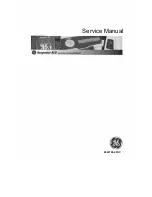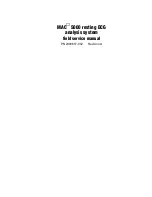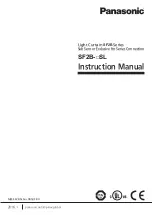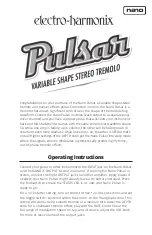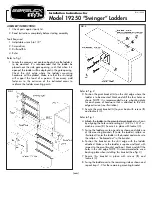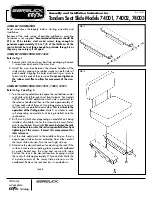
Front Panel
Analog Output
u
Balanced Output - Balanced XLR analog output. Whenever a suitable receiver is available this
output should be the first choice.
XLR pinning as followed:
1 = Ground
2 = Non-inverted output, sometimes called “hot” or “+” input.
3 = Inverted output, sometimes called “cold” or “-” input.
v
RCA Output - Standard RCA output for analog signal..
Digital Connection
w
USB - USB 1.1 connection to computer, supports up to 48 kHz sample rate.
x
TOS-Link - Optical digital SP/DIF input, supports up to 96 kHz sampling frequency.
y
COAX - Coaxial digital SP/DIF input, supports up to 192 kHz sampling frequency.
z
AES/EBU - Balanced digital SP/DIF input, according to professional standard, supports
up to 192 kHz sampling frequency. Whenever a suitable source is available
this input should be the first choice.
XLR pinning see
u
Power Connection
{
AC Power - Connection for the AC power cord.
Rear Panel
USB Sound System Section
u
HEADPHONE - Use this terminal for connecting a headphone with a 3.5 mm plug. Audio signals via
USB can be listened to.
v
MIC - Microphone input terminal for connecting a microphone with a 3.5 mm plug.
By turning the level knob the microphone amplifier switches on - indicated by Mic-LED
- and can be adjusted for optimum level. The microphone signal will be send
via
USB
to a
connected
computer.
The microphone and headphone section is supported up to 48 kHz sample rate and
is for USB sound system use
only
. Microphone signals can be send to computer via
USB. Audio signals via USB from computer can be listened by headphone. A common
use for this section is internet telephony.
w
POWER - Power switch, turns the unit on / off. On is indicated by LED.
State Of The Art Digital Audio Section
x
SELECT - Select different settings, indicated by LED, by pushing and rotating the Rotary Encoder.
Press to choose one of the following function groups
y
to
|
and rotate to select your
choice.
y
INPUT - Select the input source. The selected input is indicated by LED.
USB
- USB 1.1 connection to a computer, supports up to 48 kHz sample rate.
TOSLINK
- Optical TOSLINK input, supports up to 96 kHz sampling frequency.
COAX
- Coaxial SP/DIF input, supports up to 192 kHz sampling frequency.
AES/EBU
- Balanced AES/EBU SP/DIF input, supports up to 192 kHz sample rate.
z
DF - Select Digital Filter:
FLAT
is optimized for linear frequency,
SOFT
for best dynamic.
{
ΔΣfs - Choice of oversampling rates
32fs
,
64fs
and
128fs
. 32fs offers lowest distortion.
|
DITHER - Dither switches the lowest bit randomly, thus encreasing openness and low level
linearity.
}
SAMP. - These LEDs indicate incoming sampling frequency:
x1
: 32, 44.1 or 48 kHz;
x2
: 88.2 or 96 kHz;
x4
: 176.4 or 192 kHz.






